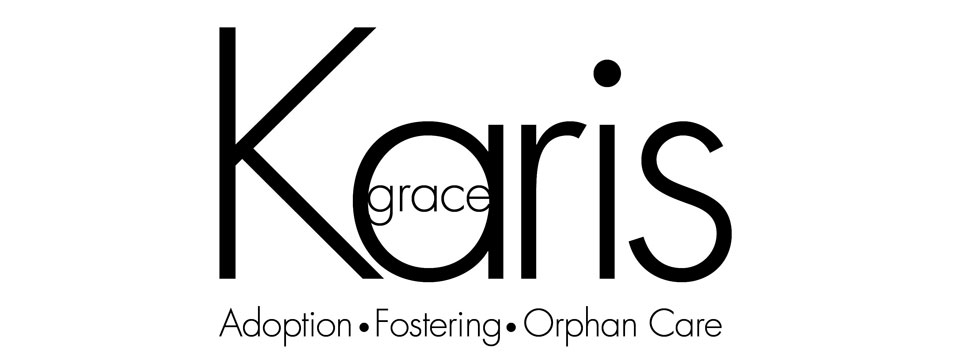
by James Hunt | Apr 10, 2014
What’s in a number? A number by itself only exists as a concept. However, when applied to something tangible it takes on meaning.
For instance, my son went to the doctor the other day. They checked his weight (a number), took his blood pressure (more numbers), and asked his age (another number). Each number resulting from the three inquiries at the doctor’s office took on meaning when attached to something tangible.
Of course this is true in silly examples like, “How many tacos do I want to eat?” Or, “Is 10 minutes of power walking okay instead of the 30 that I first intended?” The former will contribute to my girth and the latter to my energy level and cardio health. Numbers need application to actually mean something.
Here’s a number for your consideration: 11,606. That’s the number of kids in foster care in the custody of the state of Oklahoma as of February 28, 2014. Out of that number 1,073 were in trial reunification with biological parents – but still in the custody of the state. This means that 10,533 Oklahoma children are in the custody of the state and living in an environment somewhere that is not “home.” By the way, the number of kids in foster care at the end of January 2014 was 11,121. An increase of 485 children removed from situations of abuse and neglect occurred in Oklahoma in just one month!
Be careful not to miss the fact that the stats are more than simply numbers. Statistics really consist of individual stories, the personal, tear-stained faces as well as the traumatized perspectives of each child making up that increase of 485.
In 2011 my wife and I attended a gathering called “8046 Conference.” We were interested in learning all we could about the need of children in state’s care, as well as discovering ideas on how to lead God’s people, in particular, Council Road Baptist Church, to make a difference in Jesus’ name.
We also attended the next year’s gathering but under a different name: “8308 Conference.” Why did the leadership of these annual gatherings focused on foster care and adoption choose a number for a name? The numbers 8046 and 8308 represented the number of kids in the foster system in Oklahoma at the beginning of 2011 and 2012. You will note the sharp increase in the number in state’s custody from 2011 to the present. Sad indeed.
The Oklahoma Foster Care Forum is the updated name of this conference. The leadership of the gathering changed the name in 2013. This year’s conference, for the western region of the state, will be on Thursday, April 24, from 9 a.m. – 4 p.m. at North Church in Oklahoma City. Should you choose to attend you will hear from area professionals as well as foster and adoptive parents. You will be inspired and encouraged and resourced to move toward the legal orphans in our own state.
I hope you’ll consider joining us for this regional event. Check out the website for more information and to register for this free event: okfostercareforum.org.

by James Hunt | Mar 24, 2014
“Hope deferred makes the heart sick, but a desire fulfilled is a tree of life.” (Prov. 13:12, ESV)
Delay – it ought to be a four-letter word. It’s ugly, and not many of us are fond of its smothering presence.
To experience the delay of slow traffic when you’re in a rush is one thing. Or, to be delayed by the person with 50 items who ignored the “20 Items or fewer” sign is minor compared to other delays.
A person waits for the medical diagnosis for the treatment – waits in hope for the treatment to be successful. Delays concerning our physical health can impact our emotional health. When one hopes for healing… and the healing actually comes. Then the desire fulfilled is like a tree whose fruit brings life to our bodies and souls. Of course, when the delays in our physical healing continue, our emotional stresses deepen.
No matter the hope – whenever hope is delayed we are affected.
My wife and I delayed becoming parents for the first 10-plus years of our marriage. There were times we wondered if we should start a family. There were many occasions where I sensed the loss of something I’d not experienced yet – and for which I still felt unprepared. I shed tears and longed to be a dad – sometimes.
Then, just like that, 14 years had passed, and we were still not parents. Had we waited too long? Had our delay resulted in ultimate loss of opportunity? My heart was sick.
What we didn’t know was that God was already working behind the scenes to answer our delay. In answering our delay God answered the heart-felt desire of four children to belong. For us, the answer for “delay” is “adoption”. No longer is there sickness of heart. In its place we have discovered delicious, life-giving fruit that sustains us and that has created “home” for all six of us.
Hope continues to be deferred for more than 400,000 kids in the foster system in the United States. Hope continues to evade the grasp of 10,000-plus kids in our own state system. Many have a permanency goal of being reunited with biological parents. Their hopes sometimes are realized – but not without way too many delays.
A child in the care of the state is completely unable to create the solution to make hope become realized.
Does God want you to play a part in fulfilling hope in a child’s life through mentoring, fostering, adoption, or, becoming an advocate for a child in need? You might just discover that as you offer yourself as a tangible means of fulfilling hope in the life of a child that you become stronger, more fulfilled and exceedingly blessed in the process. You just might find your own hopes fulfilled as you assist others in their experiences of delay.
Is it possible that the life-giving tree is you?

by James Hunt | Mar 11, 2014
Under the Old Covenant, the Law required that every seventh year be labeled as a year of release. Essentially, it amounted to a debtor’s Sabbath. Whatever had been loaned to another Israelite was forgiven, no matter how much was still owed (Deut. 15:1-2).
God wanted His people cared for. He made sure that written into the Law was the additional command that if an Israelite fell into financially challenging times, those able were to lend to them whatever they needed for survival (Deut. 15:7-8).
I suppose the smart thing to do would be to stop lending to those in need as the seventh year approached. Imagine if you lent to a person a bunch of money or goods in the sixth year, say, with a month or two before the debtor’s Sabbath arrived. Wouldn’t it be silly to lend out only to have to forgive the debt a month or two later?
God anticipated this way of thinking and gave the following command:
“Be careful that there isn’t this wicked thought in your heart, ‘The seventh year, the year of canceling debts, is near,’ and you are stingy toward your poor brother and give him nothing. He will cry out to the Lord against you, and you will be guilty.” (Deut. 15:9, HCSB)
The words translated, “you are stingy”, in the original language is more literally, “your eye is evil”.
What does this mean, “your eye is evil”? Could it be that when we begin to view generosity toward others as a threat to our personal comfort, ease and security then our sight is clouded by self-centeredness? Is it possible that this self-centeredness is actually insidious evil? Could it be that the more we allow ourselves to practice stinginess the less our lives reflect God’s glory?
This is not the only place in Scripture where the metaphorical statement, “your eye is evil” is used. See the following passages:
“Don’t eat a stingy person’s bread, and don’t desire his choice food, for it’s like someone calculating inwardly. ‘Eat and drink,’ he says to you, but his heart is not with you. You will vomit the little you’ve eaten and waste your pleasant words.” (Proverbs 23:6–8, HCSB)
“A stingy man hastens after wealth and does not know that poverty will come upon him.” (Proverbs 28:22, ESV)
In both of the above passages the original language uses the term, “evil eye”. Interesting, don’t you think?
I wonder if Jesus was thinking back on the Law and the Proverbs when He taught the following:
““Your eye is a lamp that provides light for your body. When your eye is good, your whole body is filled with light. But when your eye is bad, your whole body is filled with darkness. And if the light you think you have is actually darkness, how deep that darkness is!” (Matt. 6:22–23, NLT)
Of course, this passage in Matthew is the one about laying up treasures in heaven.
What does stinginess tell us about our value system? What does it indicate about our view of the treasure of knowing and making known the person of Christ?
When generous living seems elusive in our quest for self-preservation and self-promotion, perhaps the cure is self-denial?
May the Great Physician heal our evil eyes and place in our stingy hearts a clear view of the Gospel. May we saturate our sight with the Good News of the generosity of Jesus Christ who gave His all to make poor beggars like you and me rich for all eternity. May this spiritual sight result in Christ-like generosity shown in deeds of mercy and Gospel-advancing kindness – and all to the glory of God.
Let’s change orphans to sons and daughters. Let’s be used of God to help set the debtor free – to proclaim the year of the Lord’s release of spiritual poverty even as we seek to act generously by caring for temporal needs.
Do you see what I’m saying?

by James Hunt | Feb 20, 2014
How is it that otherwise good Christians can descend into unresolved conflict? Perhaps you’ve seen it before, church members who used to fellowship together now entrenched in the “wisdom” of their “side” and willing to promote their cause to the detriment of the unity and peace in the Body of Christ. We also see the same thing happen in relationships of marriage. Two followers of Jesus who covenanted before God and witnesses, “Till death do us part,” now willing to take a different walk to divorce court citing “irreconcilable differences.”
To be sure there are times when the reality of “irreconcilable differences” is legitimate that results in the end of a marriage or in the fracture of a local church; however, each time it happens, even in the apparent necessity of the occasion, it’s tragic, broken, and exceedingly sad.
I have to wonder, though, if many times when we see sides being drawn up that a good dose of James 3:13-18 might provide a biblical corrective? Each side in a conflict is typically convinced they are right; after all, if they didn’t have that perspective there probably wouldn’t be a conflict. Christians in dispute many times cite biblical reasons and provide scriptural references bolstering the veracity of their settled opinion on an issue or situation. Given this reality a person feels justified to take next-steps to make sure their position is understood and their way is promoted.
When we are convinced that we are right and another person is wrong and we are tempted to take it to the next level of conflict, perhaps it would be good to first evaluate ourselves to see if we are personally in possession of the heavenly wisdom or the demonic wisdom described in the following passage:
“Who is wise and understanding among you? By his good conduct let him show his works in the meekness of wisdom. But if you have bitter jealousy and selfish ambition in your hearts, do not boast and be false to the truth. This is not the wisdom that comes down from above, but is earthly, unspiritual, demonic. For where jealousy and selfish ambition exist, there will be disorder and every vile practice. But the wisdom from above is first pure, then peaceable, gentle, open to reason, full of mercy and good fruits, impartial and sincere. And a harvest of righteousness is sown in peace by those who make peace.” (James 3:13–18, ESV)
So, how do we know when our wisdom is demonic or heavenly?
Characteristics of Demonic Wisdom:
- Bitter jealousy is a key indicator that our wisdom is demonic.
- Selfish ambition (“my way or the highway,” “I’m right you’re wrong” attitudes and demands) is a sure indicator that our wisdom is demonic.
- When disorder is present then that is a clear indicator that one or both parties are plagued by bitter jealousy or selfish ambition.
Characteristics of Heavenly Wisdom:
- Our attitude is one of meekness – a quiet humility that doesn’t demand from others and doesn’t push back when someone pushes you.
- It’s peaceable (desires peace over promotion of self-perspective or “side” – willing to be wronged and love anyway)
- It’s gentle (as opposed to harsh – including speech) – “The wise of heart is called discerning, and sweetness of speech increases persuasiveness.” (Proverbs 16:21, ESV)
- Open to reason (willing to actually consider someone else’s opinion)
- Full of mercy (willing to show mercy – not give what is deserved)
- Full of good fruits (Galatians 5:19-26 – contrast of works of flesh and fruit of Spirit)
- Impartial and sincere (no favoritism and no fakeness or pretending)
- Sows seeds of peace (Recognizes that actual change in others is NOT gained by harshness and division; rather, it happens through peaceful processes in reliance on the Holy Spirit)
May God grant us all a firm commitment to pursue, possess, and portray heavenly wisdom to the glory of God in the health of His church and Christian marriages.

by James Hunt | Feb 10, 2014
One of the most beautiful metaphors for how God has brought us into relationship with Himself is the idea of adoption. Paul speaks of this in at least the following passages:
- “For you did not receive the spirit of slavery to fall back into fear, but you have received the Spirit of adoption as sons, by whom we cry, “Abba! Father!”” (Rom. 8:15, ESV)
- “But when the fullness of time had come, God sent forth his Son, born of woman, born under the law, to redeem those who were under the law, so that we might receive adoption as sons. And because you are sons, God has sent the Spirit of his Son into our hearts, crying, “Abba! Father!”” (Gal. 4:4–6, ESV)
- “In love he predestined us for adoption as sons through Jesus Christ, according to the purpose of his will, to the praise of his glorious grace, with which he has blessed us in the Beloved.” (Eph. 1:4c–6, ESV)
What can we learn from these passages about God’s love for us and our relationship to Him? We can learn that we are children who have been set free from slavery and fear and set in the Heavenly family as part of God’s precious treasure (the Beloved). No longer do we have to cry out in fear as slaves of sin under the just condemnation of God’s wrath; rather, we cry out in familial love as kids of our benevolent Abba Father, our Heavenly Daddy.
We see ourselves not against backdrop of who we used to be (slaves) and where we used to be (outside – not belonging) but as Beloved ones. The Spirit now residing in us overflows in a cry not of fear but of longing – longing to be in the presence of our Dad (Abba) who loves us with tender compassion. And, when we reach up in Spirit-generated prayer we realize that He is already there with us. The Father has made us His kids; He has conferred “Sonship” status to us whereby we are equal heirs with Christ Jesus, the Beloved Son. We discover that we are Beloved as well.
But all this came at a great price. Jesus, the divine Son spent His life fulfilling the Law on behalf of rebel sons. Jesus, the innocent Son gave His life in the place of spiritual orphans – guilty Lawbreakers. In short, God adopted those who are in Christ at great cost to Himself. God changed spiritual orphans to sons and daughters.
What is true in the spiritual realm is also true in the physical. Each time a human parent decides to adopt an orphaned child there is a great cost involved. Many times a tremendous financial cost is involved; certainly there is always an emotional price to be paid. It is difficult to pay both.
The Karis Adoption Fund exists to glorify God by helping Christians change orphans to sons and daughters through adoption. Serving Oklahoma families as well as some Ukrainian families, the Karis Adoption Fund has already helped a variety of families financially, empowering them to accomplish their goal of adopting a child. The financial cost of adoption can range from the mid-20 thousands to the mid-40 thousands of dollars. It’s expensive.
The Karis Adoption Fund has been blessed by the generous donations of God’s people. It is ready to help families offset the cost of adoption. If you are in the process of adoption, reside in Oklahoma, and confess Jesus as Lord and Savior we’d love to hear from you. Contact James Hunt at jhunt@councilroad.org and request an application for the Karis Adoption Fund.




